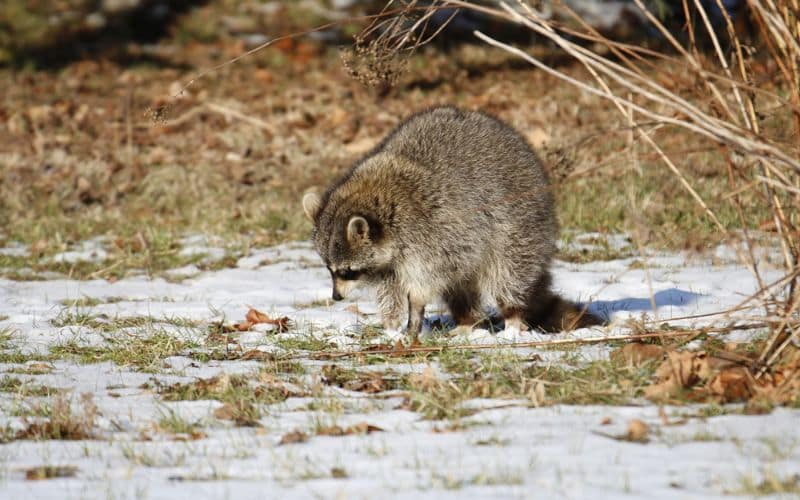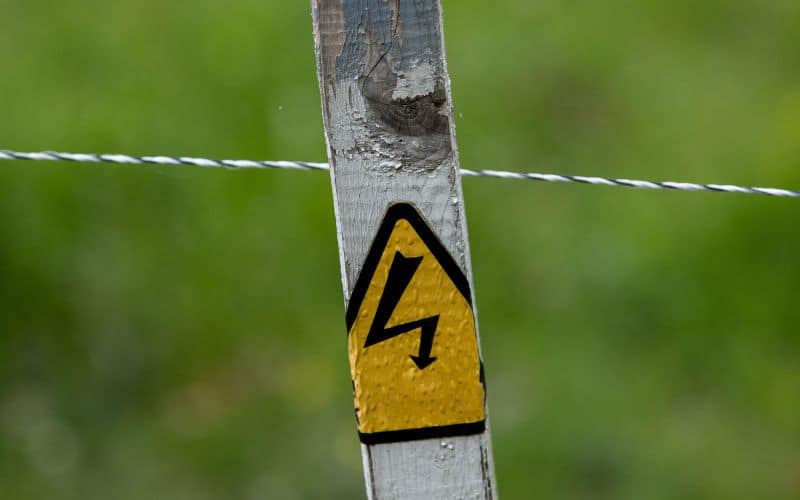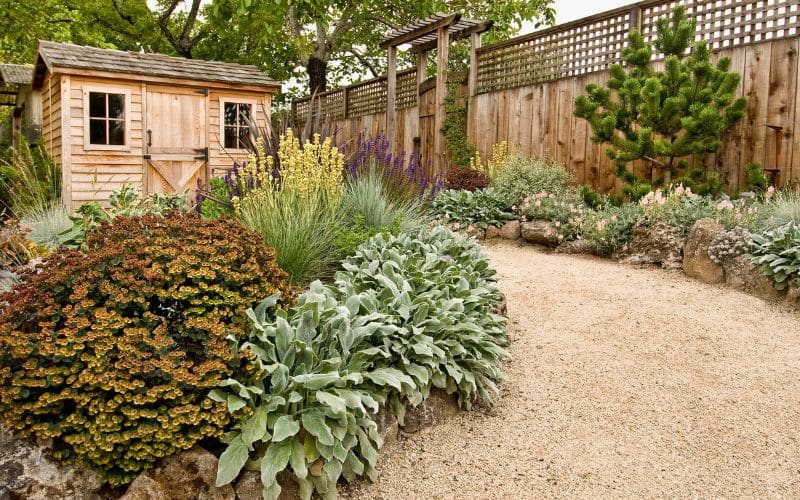
Discovering a raccoon in your garden can be a real shock, especially when it’s as tenacious as Seattle’s infamous Ciscoe. These clever critters are known for their destructive tendencies, turning lovingly tended gardens into their personal playgrounds. If you’re battling with a raccoon invasion, you’re not alone.
In this article, we’ll delve into effective strategies to keep these pesky marauders at bay. You’ll learn how to utilise their keen senses against them and the preventative measures that can save your garden from becoming a raccoon’s next target. Whether it’s through scent deterrents, motion-activated defences, or strategic fencing, you’re about to become well-equipped to reclaim your green space.
Understanding the problem
Identifying Raccoon Behavior
Your garden’s nightly visitors are more resourceful than you might expect. Raccoons, with their dexterous paws and remarkable adaptability, can become a pesky problem. Nocturnal by nature, these creatures venture out at dusk and return by dawn, making it unlikely you’ll catch them in the act. What you can spot, however, are the tell-tale signs of their presence.
You’ll recognise raccoon visits by the distinct five-toed paw tracks they leave behind, often found near uprooted plants or toppled waste containers. They have a peculiar habit of designating certain areas for defecation, known as raccoon latrines, which are not only unpleasant but potentially hazardous due to the parasite roundworm found in their feces.
The noises they make—a combination of rummaging, growls, and sometimes even purrs—may also give them away. If you’ve noticed any of these indicators, it’s time to accept that raccoons see your garden as their dining room.
Assessing the Damage Caused
The havoc wrought by raccoons is not limited to a few upended trash cans. These animals are known for causing notable destruction in search of food or shelter. You might find evidence of their feasting in the form of kenneled corn stalks or half-eaten fruits and vegetables.
| Type of Damage | Description |
|---|---|
| Lawn Damage | Holes where raccoons have been digging for grubs. |
| Plant Damage | Uprooted crops; specific interest in Brussels sprouts and cabbages. |
| Property Damage | Scratched entry points into homes; shingles and insulation materials torn apart. |
| Livestock Loss | Eggs and chickens missing from coops. |
Their pursuit of food can lead them to more than just vegetable patches and compost heaps. Think of your chicken coop or bird feeder as their buffet ticket. And while it may not have crossed your mind, the grease from outdoor grills and cookers can be just as enticing as natural food sources.
Understanding these behaviors is pivotal in crafting a robust strategy to protect your property. As your garden becomes less hospitable through targeted measures, you may notice a gradual decline in these nocturnal raids.

Natural deterrents
Creating a Physical Barrier
One of the most effective steps you can take to keep raccoons at bay is establishing a robust physical barrier. Fencing is a tried and tested method, with chicken wire being particularly useful when wrapped around raised beds. Proper fencing ensures that raccoons are unable to reach your precious plants.
To enhance the defense, you might consider an electric fence. Position one strip approximately 6 inches above the ground and a second strip around 12 inches high. This setup deters jumping and digging attempts. Bear in mind, however, that electric fencing is not suitable for all gardens, especially where small children or pets are present.
Using Strong-Smelling Repellents
Raccoons, with their sensitive noses, detest certain pungent smells which can be used to your advantage. Here’s how to incorporate strong-smelling repellents into your strategy:
- Epsom Salt: Sprinkle around your garden to discourage raccoons.
- Vinegar: Use diluted or full-strength vinegar around the perimeter of your property for its repellent effect.
- Predator Urine: The scent mimics the presence of predators, making raccoons feel unsafe.
- Homemade Mixes: Concoctions of cayenne pepper, ammonia, and even certain commercially available deterrents can prove effective.
Remember to regularly reapply these substances as their potency diminishes over time, especially after rain.
Planting Deterrent Plants
In addition to barriers and repellents, incorporating certain plants into your garden can aid in deterring raccoons. Plants with Prickly Vines or Thorny Branches act as a natural defense mechanism. Not only do these plants protect your fruits and vegetables, but they also add an extra layer of security around the perimeter of your garden.
When integrating these deterrent methods, always practice consistency and maintenance to ensure the best outcome for your raccoon-free garden.
Humane trapping and relocation
When you’re faced with raccoon troubles, your approach to removing them can significantly impact both the wildlife and your safety. Humane trapping and relocation of raccoons should always be your method of choice, ensuring the preservation of wildlife and adherence to local regulations.
Choosing the Right Trap
Selecting an appropriate trap is crucial. Live cage traps are widely regarded as the most humane option. These traps come in various sizes, but a standard option measures 32 inches in length by a foot wide. When choosing a live cage trap:
- Ensure it’s made of durable materials, either thick barred cages or solid walls with air holes.
- It should have a sensitive trigger pan to ensure the door closes promptly once the raccoon enters.
- Consult local wildlife control to determine the legal trap size and type for raccoons in your area.
Proper Baiting and Trapping Techniques
Effective baiting is key to successfully trapping a raccoon without harm. Position the bait so that the raccoon has to fully enter the trap, triggering the door to shut behind it. Common baits include:
- Sweet foods like marshmallows or fruit
- Fatty foods like bacon or peanut butter
When setting up the trap:
- Place it near areas of frequent raccoon activity
- Camouflage the trap with leaves or sticks to make it less conspicuous.
- Check the trap daily to avoid unnecessary stress to the animal.
Relocating Raccoons Safely
After successfully trapping a raccoon, the relocation must be carried out both safely and legally. Always wear gloves when handling the trap to protect yourself from potential bites or scratches. Here are key steps to follow:
- Contact local wildlife authorities for guidelines on relocation distances and locations.
- Transport the trapped raccoon during cool temperatures to reduce stress.
- Release the raccoon in a habitat conducive to its survival, preferably with water sources and away from urban areas.
Remember, while trapping may address the immediate issue, it’s essential to implement preventive measures to deter raccoons from returning to your garden.

Adjusting garden practices
Making adjustments to your garden practices can be a critical step in dissuading raccoons from turning your green space into their playground. By taking proactive measures and tweaking your gardening habits, you’ll make your outdoor area less attractive to these nocturnal visitors.
Removing Attractants
The key to raccoon prevention in your garden starts with the basics – remove anything that might entice them. They’re particularly drawn to food sources. Here’s how you can minimize these attractants:
- Keep Your Garden Clean: Regularly pick up any fallen fruits or vegetables, as these can quickly draw raccoons’ attention.
- Compost Wisely: If you compost, use a bin with a secure lid and consider placing it away from your garden area.
- Safeguard Pet Food: If you feed pets outdoors, don’t leave food out overnight. Bring it inside as raccoons are likely to sniff it out.
It’s also a good idea to look around your garden for other potential food sources that you may not have considered, such as bird feeders or fruit trees, and manage these accordingly.
Proper Waste Management
Raccoons have a strong sense of smell and are attracted to the odour of waste, making proper waste management an essential aspect of raccoon-proofing your garden.
- Seal Garbage Bins: Ensure your garbage bins have tightly fitting lids. If possible, store them in a shed or garage.
- Secure Compost: For those who compost, consider investing in a compost bin with a locking lid or place it within an area protected by an electric fence.
- Manage Smelly Waste: When disposing of particularly fragrant refuse, such as raw meat, double bag it to contain the odour. This helps to prevent the scent from attracting raccoons to your bins.
It’s not just about limiting access; it’s also about reducing the smells that entice these creatures into your space in the first place.
Harvesting Fruits and Vegetables in Time
A ripe garden is a raccoon’s buffet. To eliminate this food source:
- Regular Harvesting: Make it a habit to harvest fruits and vegetables as soon as they’re ripe. Leaving them out only invites raccoons for a feast.
- Monitor Your Garden: Keep an eye on ripening schedules and try to pick produce promptly.
By following these practices, you not only enjoy fresher produce but also maintain a garden that’s less inviting to unwanted wildlife.
Seeking professional help
When the raccoons’ persistent invasion of your garden becomes more than you can handle, it’s time to consider seeking professional assistance to resolve the issue effectively. Given below are two approaches to tackling the raccoon problem with the help of experts.
Hiring a Wildlife Removal Service
When you’ve exhausted home remedies and deterrents to no avail, hiring a professional wildlife removal service becomes necessary. This service isn’t just about removing unwanted guests from your property; it’s about ensuring the problem does not recur. Professionals will not only safely relocate the raccoons but will also identify and seal potential entry points, ensuring a long-term solution. Here’s what you should know:
- Costs: Professional raccoon removal services generally cost between $335 and $600. Prices can escalate to $1,500 for extensive infestations, particularly if a family of raccoons has settled in your attic. Investing in these services can prevent further costly damage that raccoons cause, such as destroyed insulation or chewed electrical wires.
- Expertise: These professionals have the skill set to deal with raccoons without causing harm to the animals or to your property.
- Permanence: Besides removal, professionals ensure that your garden becomes a non-hospitable environment for future invaders by reducing shelters and food sources.
Consulting with a Garden Expert
Another avenue to explore is to consult with a garden expert who can give you specialised advice on making your garden less attractive to raccoons. A garden expert may provide the following insights:
- Landscaping Design: They can suggest a garden layout that deters wildlife by recommending specific plants that aren’t as appealing to raccoons or planning a rugged terrain that discourages their movement.
- Fencing Solutions: An expert can help design effective fencing tailored to your garden’s needs, potentially including electrical elements for added deterrence.
- Maintenance Routines: They can guide you on how to maintain your yard, covering aspects like mowing regimes, debris control, and waste management to discourage raccoon visits.
- Integrated Pest Management (IPM): This approach combines biological, cultural, physical, and chemical tools in a way that minimizes economic, health, and environmental risks.
Professionals in wildlife removal and garden expertise can offer practical solutions tailored to your situation. Their services might seem like an additional cost initially, but the benefits of preserving your garden’s integrity and the safety of your home usually outweigh the financial outlay.
Conclusion
Protecting your garden from raccoon intrusions requires a blend of vigilance and smart gardening. Remember to clear away any temptations that might lure these critters in and to harvest your produce in a timely manner. If you’ve implemented these strategies and still find raccoons are a problem, it’s worth considering the expertise of professionals. They’ll offer bespoke solutions to fortify your garden against wildlife. Investing in such services not only safeguards your garden but also ensures a peaceful coexistence with the natural world around you. Stay proactive and your garden will remain your sanctuary, not a raccoon’s playground.
Colin Macmillan is a seasoned entrepreneur and the CEO of Riverwood Landscape, a leading landscaping company based in Canada. He has been at the helm of the company since leaving high school, demonstrating his strong leadership skills and business acumen.
Colin’s expertise lies in various aspects of landscaping, including lawn care, interlocking, sod installation, and commercial maintenance. His hands-on approach and dedication to the craft have been instrumental in building Riverwood Landscape into a reputable brand.
One of his most notable achievements is the creation of a successful landscape franchise that services multiple locations. This accomplishment underscores his strategic thinking and ability to scale operations effectively.
Colin has also had the privilege of working with Guelph Hospital for landscaping and maintenance, a testament to the trust and reliability that his company has earned over the years.
His professional mission is to offer the best services and experiences for customers, a goal that he tirelessly pursues. Colin’s commitment to excellence and customer satisfaction continues to drive the growth and success of Riverwood Landscape.








